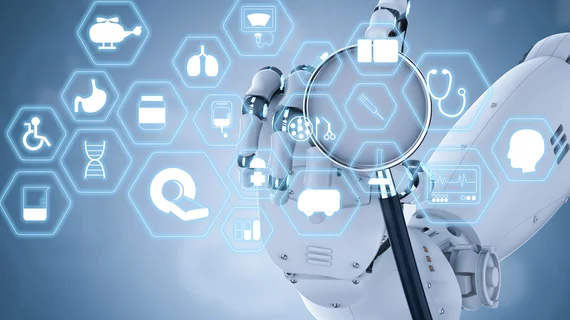Deep learning can provide accurate measurements of a patient’s musculoskeletal (MSK) system by evaluating CT scans, according to findings published in IEEE Transactions on Medical Imaging.
Such measurements are an important part of treating patients with MSK diseases. However, study co-author Yoshinobu Sato explained in a prepared statement, acquiring them traditionally requires a lot of time and energy.
“Once we have the CT images, we need to segment the individual muscles for building our model,” said Sato, representing the division of information science at the Nara Institute of Science and Technology in Nara, Japan. “However, this segmentation was time consuming and depended on expert-knowledge.”
This, the researchers hoped, was where deep learning could make a significant impact. An AI system was designed, using a U-net architecture, that could segment a patient’s individual muscles. The tool was tested on 19 thigh and hip muscles and achieved results that were seen as “statistically significant improvements” over other, more traditional segmentation methods.
“The proposed method allows an accurate patient-specific analysis of individual muscle shapes in a clinical routine,” the authors wrote. “This would open up various applications including personalization of biomechanical simulation and quantitative evaluation of muscle atrophy.”
The researchers also noted that using AI to acquire such measurements can be crucial for patients in more remote areas where access to orthopedic specialists may be limited.

